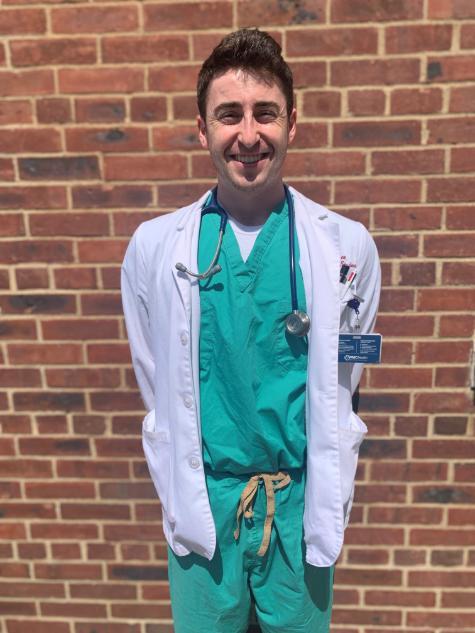
NYMC Medical Student Andrew Grant Conducts Research on Genetic Basis of Disabilities
Throughout Medical School, Andrew Grant has Worked as Part of a Team of Researchers at Massachusetts General Hospital and the Broad Institute in Boston

Throughout his time in medical school, Andrew Grant, School of Medicine (SOM) Class of 2023, has continued his involvement in a variety of research projects focusing on the genetic basis of disabilities as part of a team of researchers at Massachusetts General Hospital and the Broad institute in Boston. The research is part of the larger NIH-funded resource project Clin Gen, which seeks to build a genomic knowledge base to improve patient care by developing infrastructure and standards and aggregating and sharing relevant data about genes, genetic conditions and the genetic variants that cause them.
“With the recent advances in sequencing and analysis of genetic information as well as the development of gene therapies, I understood that genetics was going to be an integral part of all medicine soon,” said Mr. Grant. “Therefore, I chose the position at Massachusetts General (and later the Broad Institute) to embrace an opportunity to fill a gap in my knowledge and learn as much about clinical genetics as possible to inform whatever specialty I chose to go into after graduating medical school.”
Two of the research projects which focus on hearing loss have already been published and a third focused on intellectual disability (ID) and autism has been accepted for publication.
“TMPRSS3 Gene Variants with Implications for Auditory Treatment and Counseling,” which was recently published in Frontiers in Genetics, found that cochlear implantation may be a viable option for treatment of patients with hearing loss due to genetic variants in the TMPRSS3 gene. “I found this project particularly exciting because we were informing a potential intervention with the data that we had curated and published,” said Mr. Grant.
For the second study, “ClinGen Hearing Loss Clinical Domain Working Group. Disease-specific ACMG/AMP guidelines improve sequence variant interpretation for hearing loss,” which was published in Genetics in Medicine, researchers sought to provide a framework for interpreting the significance/pathogenicity of variants in genes associated with hearing loss.
“Disease specific frameworks are useful in assessing variants because of disease-specific considerations (e.g. disease prevalence, severity, inheritance patterns, etc). The goal is to provide the ability to curate more accurate interpretations of variants to inform patient care and continued research in the field,” said Mr. Grant. “In patient care, being more confident in evaluating a variant's pathogenicity allows clinicians to be more confident in stating whether a given variant is what is causing this patient’s hearing loss or if other genes/factors should be considered.”
Mr. Grant was also involved in a research project, which has been accepted for publication in Genetics in Medicine, to explore the validity of gene-disease associations in genes linked to intellectual disability and autism. “This type of research helps better inform neurodevelopmental disorder genetic testing by providing evidence to include or exclude genes from ID/autism genetic testing panels as well as information about the symptoms associated with variants in each gene,” said Mr. Grant. “It was so thrilling to have the opportunity to work on these important projects, which have the potential to help so many patients and make a difference in so many lives.”

